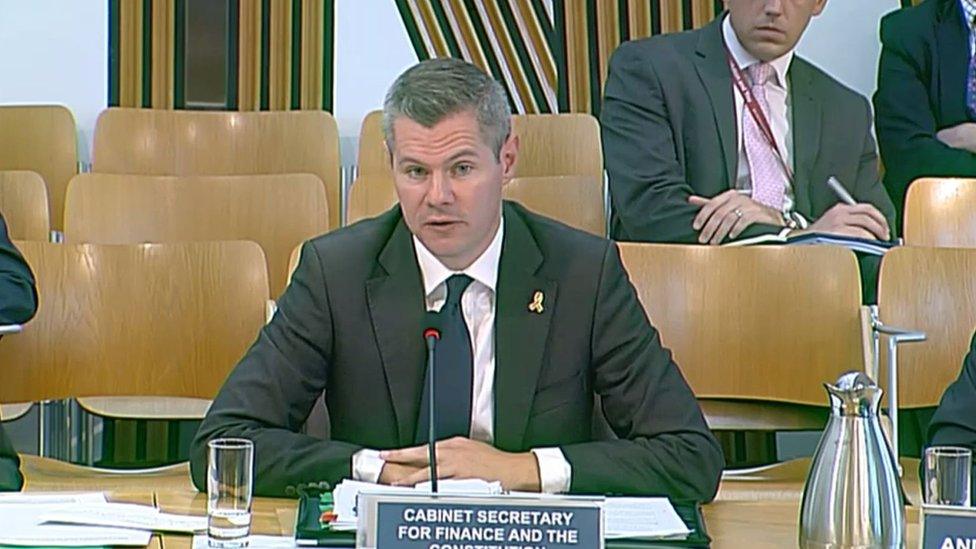Experts call for 'substantial change' to Scots budget process
- Published

Experts want Scotland to move to a year-round budget process
An expert review group has called for a "substantial change" to the way the Scottish government sets its budget.
A budget process review group was set up in 2016 in light of Scotland's newly devolved fiscal powers, comprising government and parliament officials and external financial experts.
They recommended a "cultural change" to a system with more of a long-term focus and more power for the parliament.
Finance Secretary Derek Mackay said the changes would be carefully considered.
Scotland has taken on a raft of new powers in recent years under the Scotland Act, including the ability to set income tax rates and bands and controls over a range of other levies.
There was criticism of the process while the current year's budget was being set, with opposition parties and Holyrood committees complaining that they were not given enough time to scrutinise proposals.
'Substantial change'
The group's final report, external recommends an "all year round" approach to budgeting and scrutiny, with the government publishing a medium-term financial strategy each spring and data on Scottish tax revenue each autumn.
They also said parliament and its committees should have more opportunity to influence the government's plans, to improve transparency and improve public understanding and awareness of the budget.
Group member Dame Sue Bruce said a "substantial change" to the budget process was needed in light of new powers.
She said: "We see this as an ideal opportunity for cultural change. Scrutiny at present tends to adopt a short-term approach, with an over-emphasis on 'winners and losers' year on year. There is little consideration of longer-term trends.
"It is also evident that the sequencing of the current budget process fails to deliver sufficient opportunity for parliament to exert its influence over the government during its budget preparation.
"We recommend, therefore, that budget scrutiny shifts to a full year approach. Committees should engage with their respective ministers at least six weeks prior to the budget being published, setting out their respective policy priorities for the forthcoming budget."

Finance Secretary Derek Mackay has welcomed the review
Auditor General Caroline Gardner, who has previously called for extra scrutiny of "increasingly complex" budgets, said: "Parliament's extensive new financial powers reinforce the pressing need for scrutiny to become more focused on outputs and outcomes.
"For parliament's oversight of tax-raising and spending plans to be really effective, we recommend a shift towards multi-year budgets by the Scottish government. This will also assist public bodies to develop medium-term priorities and better address future challenges."
'Significant devolution'
Responding for the government, Mr Mackay said they had "strongly supported" the creation of the review group.
He said: "A lot has changed since the current process was designed, including the devolution of significant new financial powers through the Scotland Acts 2012 and 2016. This report proposes a new approach to our budget process that suits the wider powers and responsibilities that Scottish Parliament now has.
"We welcome the conclusions reached in the report and will consider the specific recommendations over the summer and discuss their implementation with the finance and constitution committee."
It is expected that the finance committee and the government will make joint recommendations to parliament for a new budget process after the summer recess.
- Published27 January 2017

- Published9 September 2016
